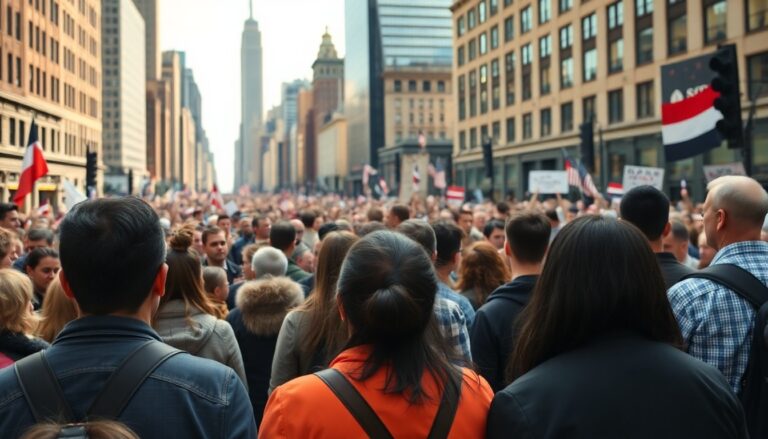Argomenti trattati
The ongoing mayoral campaign in New York City has seen various candidates, with Zohran Mamdani emerging as a significant contender. His recent rally, supported by influential figures like Senator Bernie Sanders and Representative Alexandria Ocasio-Cortez, aimed to connect with the everyday struggles of New Yorkers. However, an incident at the rally has raised serious questions about the campaign’s commitment to transparency and accessibility, particularly for members of the press.
While attending the rally in Forest Hills, Queens, I encountered an unexpected obstacle when I learned that my ticket had been canceled, preventing my entry. Despite my status as a journalist, I was denied access and escorted away by security. This experience sharply contrasted with the campaign’s professed values of openness and inclusivity.
Unpacking the incident
Arriving at the venue well before the event started, I observed a steady stream of attendees being welcomed by campaign staff. The atmosphere was vibrant, with supporters eager to hear Mamdani speak. However, as I approached the ticket check, I was informed that my ticket had already been scanned, which puzzled me. I had just arrived and had not interacted with anyone regarding my ticket.
Communication breakdown
After a frustrating exchange with the staff, I provided my identification and requested to speak with a supervisor for clarification. This request led to a change in narrative: my ticket was now labeled as canceled, and I was directed to leave the premises. My attempts to explain my role as a member of the press seemed to be ignored, as they remained unyielding, forcing me out while a large crowd entered the event.
This experience left me questioning whether my exclusion stemmed from an error or a deliberate act by the Mamdani campaign. My repeated attempts to engage with the campaign for comments in the weeks leading up to the rally had gone unanswered, highlighting a troubling pattern of avoidance towards those who may hold differing views.
Implications of exclusion
As a journalist, my goal has always been to accurately represent the perspectives of candidates like Mamdani. However, the lack of communication from his campaign, combined with the incident at the rally, raises serious concerns about how a potential Mayor Mamdani would handle dissenting voices. If he is unwilling to engage with critical media, what would that mean for his administration’s approach to governance?
Engagement with diverse perspectives
A healthy democracy thrives on informed criticism and diverse viewpoints, which are essential for any government to adjust its course when necessary. It is crucial that all constituents, from working-class citizens to small business owners, have their concerns heard and addressed. The incident I faced at the rally casts doubt on Mamdani’s ability to genuinely listen to those outside his immediate circle.
Reflecting on my experiences reporting on various mayoral candidates, I had access to others, like Andrew Cuomo and Curtis Sliwa, who facilitated opportunities for dialogue and engagement. In stark contrast, the Mamdani campaign has not only ignored my requests for comment but also failed to provide any public schedules for media purposes.
Looking ahead
As Mamdani’s campaign progresses, it is essential for him to address these transparency issues. Should he become mayor, the approach he takes toward media engagement could significantly impact public trust in his administration. While the rally experience I encountered may have been an isolated incident, it raises critical questions about his willingness to foster an inclusive environment for discourse.
As Election Day approaches amidst a divisive political landscape, the significance of transparency and communication within Mamdani’s campaign cannot be overstated. The future of New York’s governance may depend on how well he navigates these challenges and whether he can truly embody the inclusive spirit he claims to promote.

